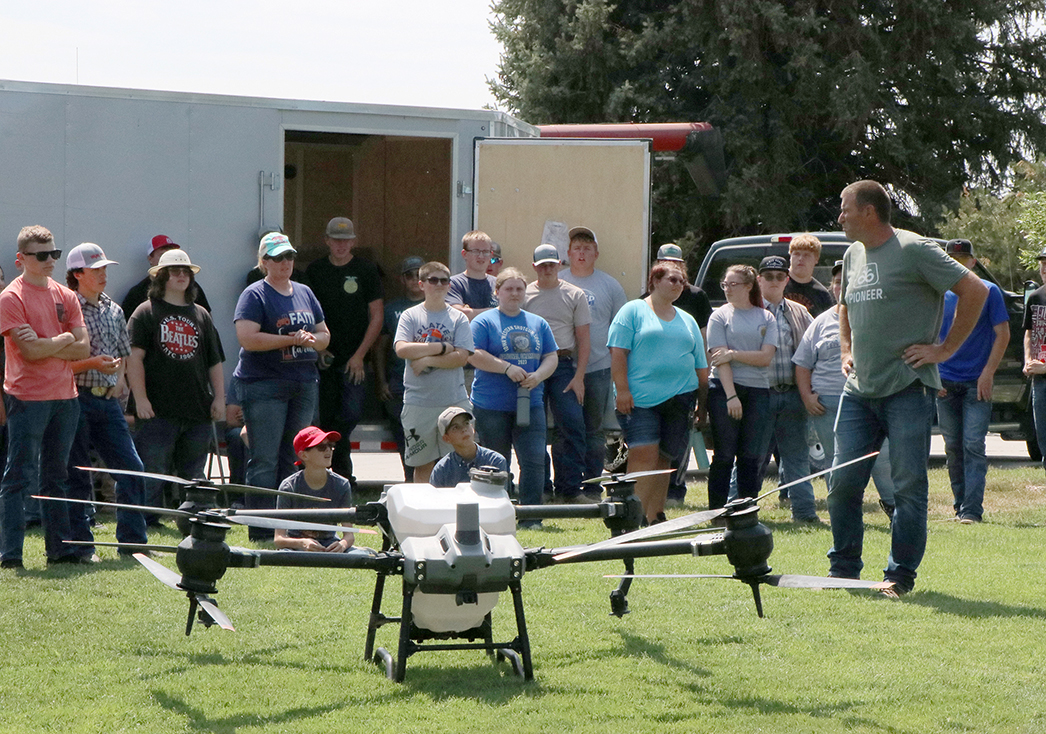![]()

By Chabella Guzman, UNL PREEC communications
The Nebraska Extension will host an in-person Part 107 Remote Pilot Knowledge Test for drones on Wednesday, March 6, at the Panhandle Research Extension and Education Center in Scottsbluff.
“Many farmers don’t know they need a license to use drones to evaluate or take pictures of something to be sold, such as cattle or crops,” said Dirk Charlson, Nebraska Extension, educator of digital agriculture. “With heightened interest in spraying drones, which are practical for spraying chemicals, it’s bringing new people to the world of drones.”
Spraying was one of the reasons Dan Fitts, a farmer in Melbeta, Neb., decided to begin using drones. The other was timeliness. He was familiar with smaller drones but never really considered them for spraying until the T40 spraying drones came out. “It clicked with the T40s and made sense. I started with pre-emergent spraying and kept going with summer fungicide applications.”
The FAA considers drones to be aircraft. So, operating a drone in national airspace follows requirements similar to those of manned aircraft, which can create challenges for farmers like Fitts. He said it was quite a process when he applied for a license, but he understands it has become more streamlined. For Fitts, the positives outweigh the challenges.
“One of the main positives is taking care of weeds and insects immediately and not having to wait on an airplane,” he said. The drone also takes a lot of the guesswork out of his job. When it runs out of chemicals, it’ll return to the place it left off once it’s been refilled, so there is little worry about putting too much or respraying an area. Fitts said challenges remain, but most, like the wind, are environmental.
“Agriculturalists looking to put a drone to work in their operation should consider taking the preparation course,” said Charlson. He will be teaching the eight-hour course on March 6. The course will prepare participants to successfully pass the FAA Aeronautical Knowledge Exam for a Remote Pilot Certificate (license) to fly drones commercially.
Space is limited, and the pre-registration deadline is March 4. The registration fee for the public is $250. Educators, undergraduate/graduate students, or post-docs should contact Charlson prior to registering to receive a promo code to reduce the fee.
For more information on registering, contact Dirk Charlson at dirk.charlson@unl.edu or 402-460-0742
